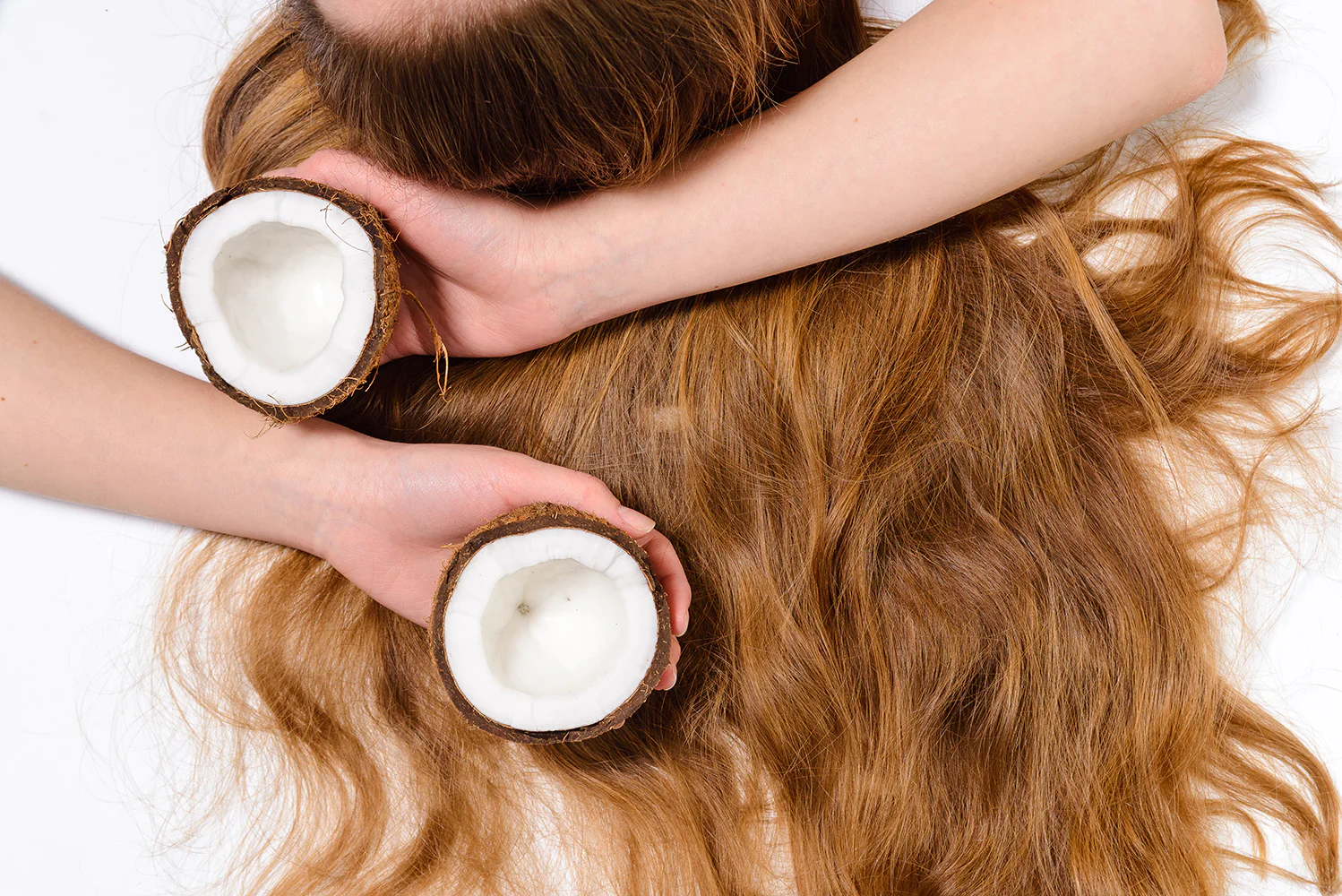Understanding coconut oil for low porosity hair is essential for those people who suffer from low porosity hair. Coconut oil is a popular natural remedy, known for its many effective benefits that are for hair.
Basically, coconut oil is known as cooking oil. However, many people use this oil for hair care due to its moisturizing and nourishment properties.
So, here is the confusion about whether you should use coconut oil for hair care, especially low porosity hair. Does your hair suffer from low porosity? Know about this!
After reading this article, your confusion about coconut oil for low porosity hair will be destroyed.
What is Coconut Oil?
Coconut oil, which is extracted from the meat of mature coconut, is full of many benefits of hair care. Many most effective ingredients are present in it such as fatty acids that help reduce the loss of protein in the hair, reducing the risk of hair breakage and damage. Coconut oil penetrates the hair shaft more efficiently than other oils. It provides deep conditioning and makes hair soft and shiny. However, it can be heavy oil than other oils for low porosity hair.
Ingredients of Coconut Oil
Coconut oil naturally contains chain-medium fatty acids, including vital ingredients that play a critical role in promoting hair health and nourishment.
♦ Lauric Acid
Coconut oil contains the highest number of fatty acids in coconut oil known for their antibacterial and antiviral properties.
♦ Caprylic Acid
This is another chain-medium fatty acid that also has antimicrobial benefits.
♦ Capric Acid
This fatty acid also contributes to the antimicrobial effects of the oil.
♦ Myristic Acid
This acid helps in the absorption properties of the oil into the hair shaft.
♦ Palmitic Acid
It is a saturated fatty acid that provides moisturizing benefits.
♦ Oleic Acid
This is another fatty acid called monounsaturated which contributes to the oil’s moisturizing properties.
♦ Linoleic Acid
It is a crucial polyunsaturated fatty acid that helps with skin and hair hydration.
♦ Vitamins
Coconut oil contains small amounts of vitamins E and K, which are beneficial for hair and skin.
♦ Phytosterols
These are plant-based compounds that have anti-inflammatory and moisturizing properties.
Pros of Using Coconut Oils for Low Porosity Hair
Coconut provides several benefits for healthy hair due to its moisture property.
Moisture Retention
Coconut oil, which is very important for low-porosity hair, helps maintain hydration and helps moisture penetrate the hair shaft more easily. Apply coconut oil after washing hair. It can help lock in water, keeping your hair moisturizing for longer.
Hair Strengthens
The lauric acid in coconut oil has a low molecular weight, so it penetrates deep into the hair follicle. This deep penetration helps strengthen the hair from within and reduces split ends.
Reduce Protein Loss
It maintains the protein of the low porosity hair and prevents protein loss during regular use, helping to maintain the shine and strength of the hair.
Scalp Health Maintenance
The anti-fungal properties in coconut oil that help fight scalp conditions like dandruff and ringworm infections also play an important role in creating a healthy scalp for the overall health of your hair.
Natural Shiny
Using coconut heart enhances the natural shine of your hair, making it look healthy and shiny. This is especially beneficial for those with a small bust who often look dull due to product build-up.
Cons of using Coconut Oil for Low Porosity Hair
Coconut oil is heavier than other oils, having some cons for low porosity hair.
Potential build-up
There is a main challenge with low porosity hair, which is called product build-up. Coconut oil can increase this problem. Because the hair cuticle is tightly attached, Coconut oil can sit on the hair shaft surface instead of absorbing. It may cause greasy and weighed-down hair.
Protein overload
It is a fact that coconut oil helps to maintain protein in hair, but overusing coconut oil for low porosity hair can cause an overload of protein. Low porosity hair is often stiff and brittle due to using too much protein. That’s why, it becomes crucial to use coconut oil for low porosity hair in moderation and with carefully.
Rinse out difficulty
While coconut oil is heavy, it can make it difficult to rinse out thoroughly. It can leave residue on low porosity hair and lead to further build-up and potential scalp issues.
Potential allergic reactions
Some people can suffer from allergic reactions to coconut oil. Before applying it to your scalp and hair, It is vital to conduct a patch test to prevent any adverse reactions.
⇒How to Use Coconut Oil for Low Porosity Hair?
If you have decided to include coconut oil in your haircare routine, here are some tips to make more beneficial oil for low porosity hair.
- Apply a small amount of coconut oil to your scalp and leave it for 15 to 30 minutes then wash your hair as routine. It can help protect your hair from protein loss and make it easier to rinse thoroughly.
- Mix coconut oil with other light oil or such ingredients that are easier to absorb. For example, you can mix aloe vera, argan oil, or jojoba oil in coconut oil for low porosity hair.
- When here, it comes to the situation of coconut oil for low porosity hair, less is more. Always use small amounts to ensure your hair is light and bouncy.
- Warm coconut oil before using coconut oil for low porosity hair. It will help to penetrate the hair shaft more effectively.
- Remember, a few seconds in warm water and a quick zip in the microwave is enough for warming coconut oil.
- Use clarifying shampoo once a month to prevent build-up and remove any residue from your hair and scalp.
- These tips will help you keep your hair healthy and maximize the benefits of coconut oil for low porosity hair.
Conclusion
There is no evidence that only coconut hair is enough for low porosity hair. This oil is heavy compare other oils for low porosity hair like argan oil, jojoba oil, and grapeseed oil. If you will not get specific results of coconut oil for low porosity hair, here is lightweight oils benefits are described. Discover it and make your hair more power full to fight low porosity.
Consider coconut benefits such as improved moisture retention, strengthened hair, reduced protein loss, and enhanced scalp health. However, it is essential to use coconut oil with caution due to potential drawbacks like product build-up, protein overload, difficulty in rinsing out, and possible allergic reactions. By applying coconut oil in moderation, mixing it with lighter oils, and using clarifying shampoos, you can effectively harness its benefits while mitigating its downsides, ultimately achieving healthy, shiny, and manageable low porosity hair.

Fashionista arena is a beauty blog in which all posts are created by our experts. This blog shows fashion trend in the market, about personalities, skin care, hair care, health and fitness. So, read interesting posts enjoy!
Living well, everyday!


